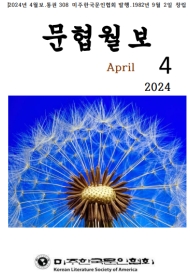Course in General Linguistics
==============================
By Ferdinand de Saussure
Wolran Kim
January 2014
According to Saussure’s Course in General Linguistics, language is an abstract system shared between social members. Language is not a function of the speaker but it is a product of personal assimilation. Language is homogeneous whereas speech is heterogeneous, and it is a system of signs. The sign is of actual substance that is represented through linguistic life, and it includes intonation, stress, long, short, word choice, grammar, and even connections between sentences. The sign has infinite variations. The sign is related to language, and communication is impossible unless the same language is used. Saussure criticized traditional grammar and emphasized the study of varieties of syntax.
The sign has two aspects: a signifier is a sound-image of material sense and is a signified concept. The linguistic sign is arbitrary and there is no natural connection between the signifier and signified. A signifier is a material sense of the sound and the signified is the meaning of the symbols.
For example, the pronunciation of [triː] is a signifier and the specific object of tree is signified. The concept of ‘tree’ does not have any internal relationship with a series of sounds, auditory or visual signifiers. For another example, onomatopoeic words are only approximate imitations of certain sounds (English dogs bark bow-wow and Korean dogs bark mung-mung). The link between the signifier and signified is an arbitrary relationship without any connection. Language does not have ideas or sounds that existed before the linguistic system.
Saussure is talking about the two basic principles: relationship between the signifier and signified is arbitrary, and the signifier is linear. A linguistic sign does not connect between the subject and the name, but combines concepts and sound-images. The sign system is passed down from generation to generation, and cannot easily change because of an agreement system. However, there is variableness on the relationship between signifier and signified changes in process of time while changing the spelling, pronunciation, or concept. Language is never changed or created by individuals alone, because it exists between social members by a kind of contract.
Saussure’s linguistic theory is quite surprising because scientific analysis is not familiar in general linguistics. He shows that we are not the owner of our language that we are using. Language systems exist outside of the individuals or physical reality. Without language, human thought is undefined or formless, and any distinction is impossible before the appearance of language. Language development is not the process of naming that, which connects the pre-existing signifier and applicable signified.
Can humans think without language? According to Saussure’s view, human thoughts are just floating clouds without any form in the sky before being formed by linguistic sign. That is to say, human’s articulated thought is not possible without the intervention of language systematically.
However, the whole human cognitive process is not dominated by language. Thinking and reasoning are possible through image as well. Language is not just a tool of expression as a separate entity from thought. The relationship between the signifier and signified is not natural or logical, but arbitrary in nature, socially and historically. Thus, Saussure’s general linguistics theory is included in a variety of cultural phenomena such as characters, symbolic rituals, and manners. The semiotics can provide methods, concepts, or models to grasp in-depth logic and codes of culture.
==============================
By Ferdinand de Saussure
Wolran Kim
January 2014
According to Saussure’s Course in General Linguistics, language is an abstract system shared between social members. Language is not a function of the speaker but it is a product of personal assimilation. Language is homogeneous whereas speech is heterogeneous, and it is a system of signs. The sign is of actual substance that is represented through linguistic life, and it includes intonation, stress, long, short, word choice, grammar, and even connections between sentences. The sign has infinite variations. The sign is related to language, and communication is impossible unless the same language is used. Saussure criticized traditional grammar and emphasized the study of varieties of syntax.
The sign has two aspects: a signifier is a sound-image of material sense and is a signified concept. The linguistic sign is arbitrary and there is no natural connection between the signifier and signified. A signifier is a material sense of the sound and the signified is the meaning of the symbols.
For example, the pronunciation of [triː] is a signifier and the specific object of tree is signified. The concept of ‘tree’ does not have any internal relationship with a series of sounds, auditory or visual signifiers. For another example, onomatopoeic words are only approximate imitations of certain sounds (English dogs bark bow-wow and Korean dogs bark mung-mung). The link between the signifier and signified is an arbitrary relationship without any connection. Language does not have ideas or sounds that existed before the linguistic system.
Saussure is talking about the two basic principles: relationship between the signifier and signified is arbitrary, and the signifier is linear. A linguistic sign does not connect between the subject and the name, but combines concepts and sound-images. The sign system is passed down from generation to generation, and cannot easily change because of an agreement system. However, there is variableness on the relationship between signifier and signified changes in process of time while changing the spelling, pronunciation, or concept. Language is never changed or created by individuals alone, because it exists between social members by a kind of contract.
Saussure’s linguistic theory is quite surprising because scientific analysis is not familiar in general linguistics. He shows that we are not the owner of our language that we are using. Language systems exist outside of the individuals or physical reality. Without language, human thought is undefined or formless, and any distinction is impossible before the appearance of language. Language development is not the process of naming that, which connects the pre-existing signifier and applicable signified.
Can humans think without language? According to Saussure’s view, human thoughts are just floating clouds without any form in the sky before being formed by linguistic sign. That is to say, human’s articulated thought is not possible without the intervention of language systematically.
However, the whole human cognitive process is not dominated by language. Thinking and reasoning are possible through image as well. Language is not just a tool of expression as a separate entity from thought. The relationship between the signifier and signified is not natural or logical, but arbitrary in nature, socially and historically. Thus, Saussure’s general linguistics theory is included in a variety of cultural phenomena such as characters, symbolic rituals, and manners. The semiotics can provide methods, concepts, or models to grasp in-depth logic and codes of culture.













